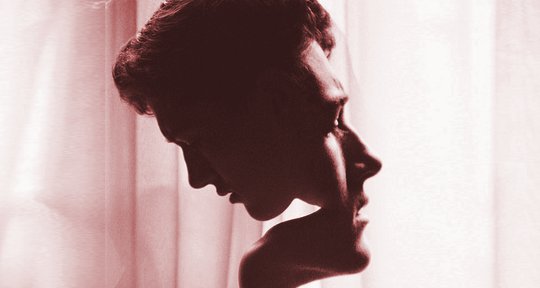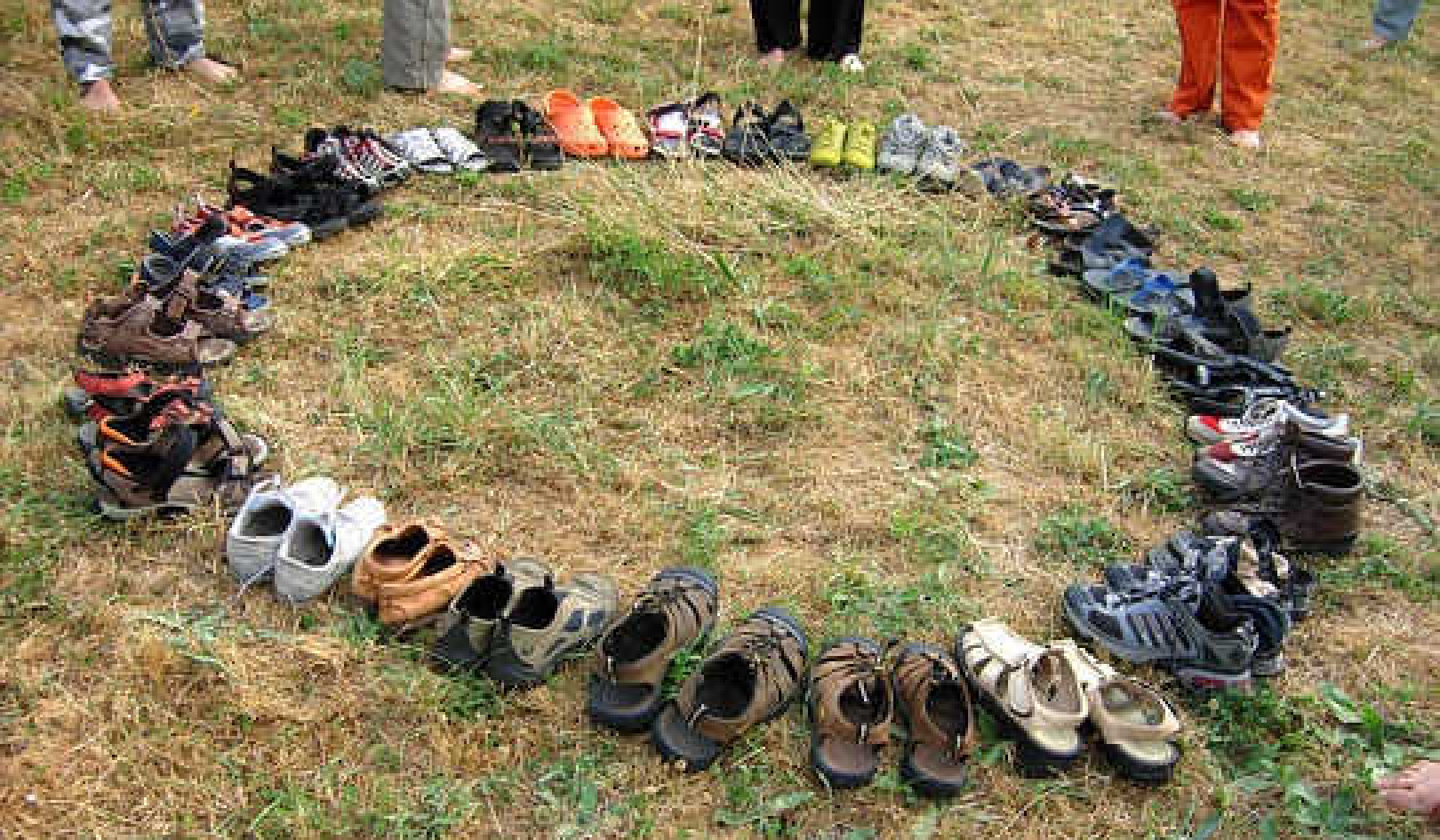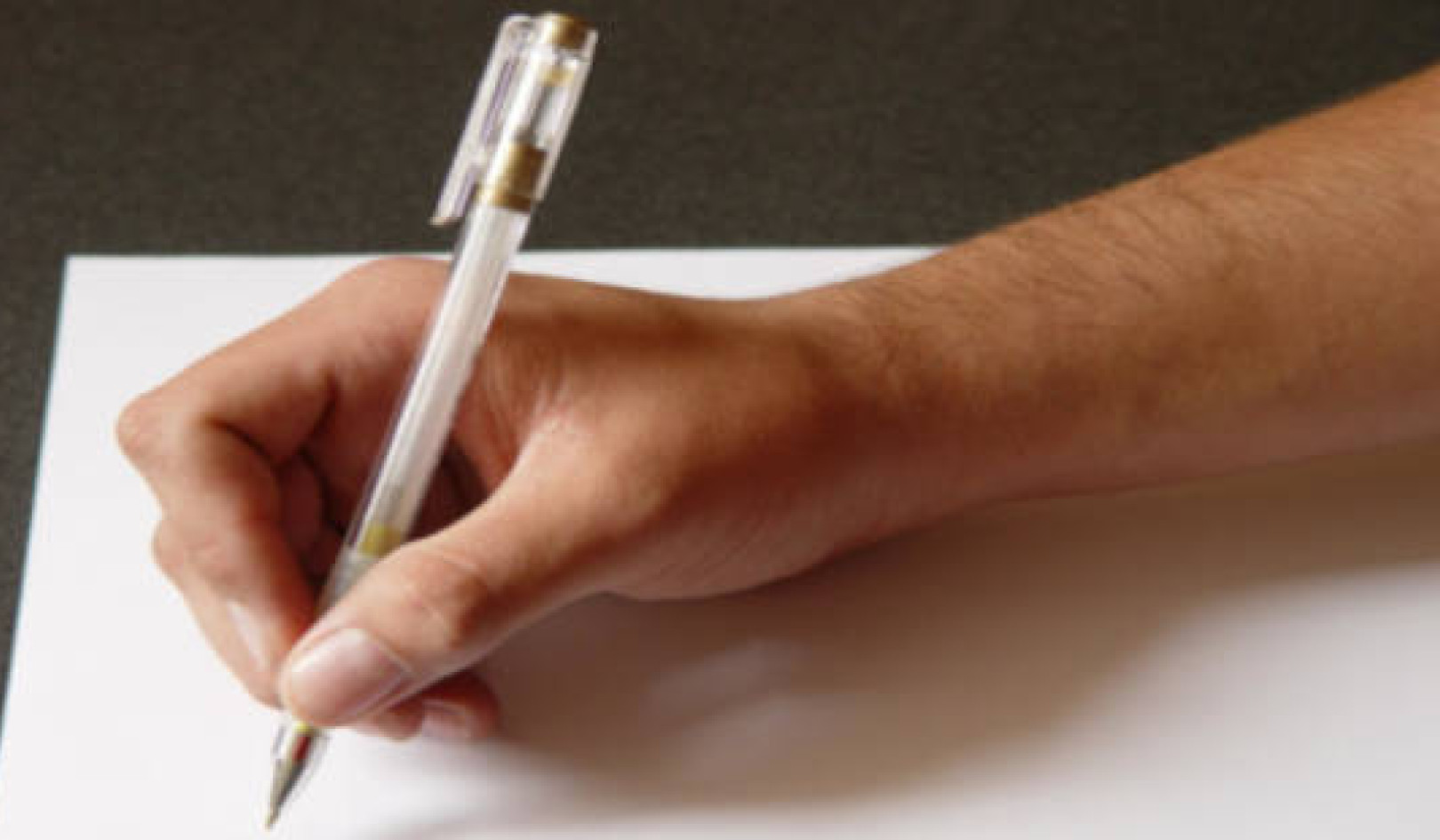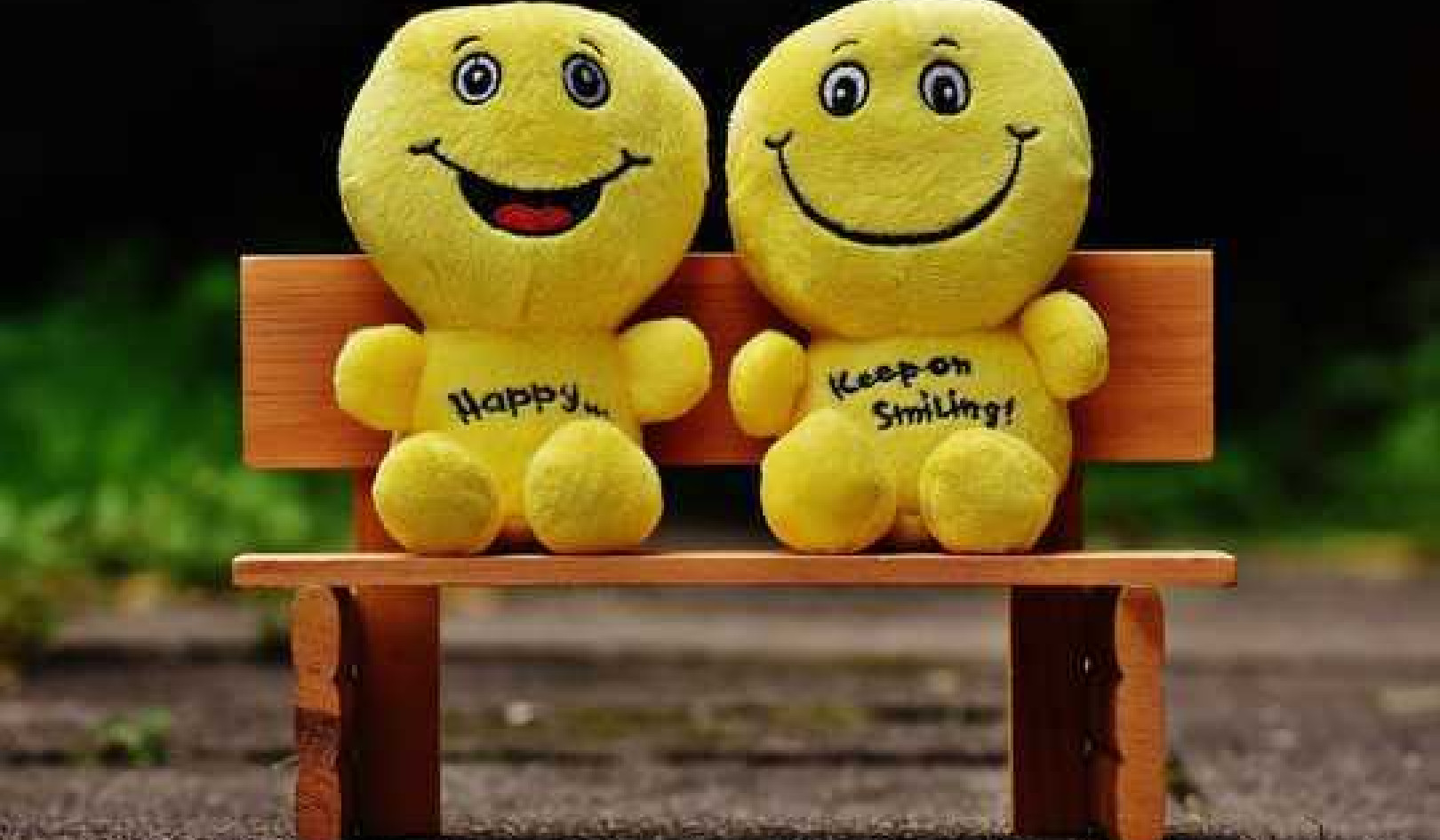
As a child, I was afraid of so many things. I was terrified during my parents' violent arguments. I was afraid of my mother's rage and my father's simmering undercurrents. I was initially scared at every new school I attended. (We moved nine times during my childhood.) I was afraid that no one would like me and that I wouldn't have any friends. And I was frightened that there was something under the bed that would grab me in the night. My childhood was defined by my fears.
As I grew up, I suppressed fear and denied its existence. But it shaped my life in hundreds of ways. For example, as a teenager I applied for jobs that were mediocre because I knew they would accept my application. I was afraid that if I tried for jobs I wanted, I wouldn't get hired, so I never even tried. I didn't usually date guys I was really attracted to because I was worried they might reject me, so I dated guys that I wasn't drawn to but who were comfortable.
Looking back, I can see that most of the major decisions I made in my youth were based on fear. Now, in my adult years, I still feel fear. I'm afraid of lots of things such as rejection, humiliation, both failure and success, and something happening to my loved ones. But now I'm unraveling my fears, understanding my shadow self, and learning about the woman who exists beneath the fear. It is a journey well worth taking.
What Is the Shadow?
On your journey to discover your inner secrets and mysteries, you may find it valuable to explore the dark, hidden crevices within your psyche. The renowned Swiss psychologist Carl Jung called this place the "shadow self." It is also called the lower self, animal nature, the alter ego, or the inner demon -- the place where the unowned side of your personality lives. Your shadow self is the part of you that stays unknown, unexamined, and out of the light of your conscious awareness. It is the part that is denied or suppressed because it makes you uncomfortable or afraid. Whatever doesn't fit your image of your ideal self becomes your shadow.
Jung asked, "Would you rather be good or whole?" Many women choose goodness, and as a result, are fractured. It is especially important to explore your shadow as you strive for the light, because this often increases its density. This occurs because what you resist in life tends to persist and even become stronger. If you resist your dark side, it becomes more solid.
I've noticed a high proportion of light-seekers have been abused or severely traumatized as children. I believe that a number of women are drawn to light work, such as angel studies, because it makes it easier to suppress the pain of the past. Focusing on higher realms can make it easier to deny the pain of the darker inner realms. Many women who are "striving for the light" deny the existence of their dark side, and thus it can eat away at them and be damaging in many ways.
Research confirms that women who get cancer tend to be much nicer than average. I believe this is because they subconsciously repress their shadow self. Also, research shows that a woman who rages at her cancer situation heals faster than a woman who is a people-pleaser and doesn't want to bother anyone. When you own and accept your shadow, you will be healthier and happier.
Where Shadows Come From
You weren't born with your shadow. Babies love and accept themselves; they poop all over themselves and then laugh with glee. They don't judge themselves harshly and think some parts are good and some parts are bad. There are only two natural fears -- fear of falling and fear of loud noises. All other fears are learned or conditioned by your family, culture, and upbringing; and what you have learned, you can unlearn!
From our earliest years, we build belief systems about ourselves based on our childhood experiences and things we were told about ourselves. For every positive statement a child receives, they receive, on average, twenty-five negative statements such as "You're always so clumsy" or "You'll never learn."
A child doesn't have the protective shields that an adult has. They haven't learned how to filter and discern the information they receive, so they accept negative statements about themselves as true. A child who is told that she is unlovable will believe this to be true. As that child grows, these beliefs will become overtly obvious, or they will become masked in the form of a shadow self.
The more hidden your shadow is, the more covert an influence it will have on you. Once you are prepared to shine a light on the darker parts of yourself, you must be prepared to be honest about what you uncover. I believe that you will never be completely fulfilled as a woman until you look in every corner of yourself to reveal what lies deep within. Until the moment that you face your fears and honor your shadow side, there will exist a depth inside you that you cannot fathom.
Facing Your Shadow
When I lead seminars I'm blessed to have people come up to me afterwards and say, "'Oh Denise, you are such a wonderful, compassionate human being!" When this first started, I was really uncomfortable. I wanted to shout, "If you really knew me and knew my background, you wouldn't say that." But I would nod and smile, and hope like hell that they didn't find out who I really was.
As some well-wisher would speak to me in glowing terms about how they perceived me during the seminar, images from my past would flood my mind: memories of panhandling on the streets of Chicago; sleeping overnight on a park bench in Yugoslavia (which landed me in jail for a few hours); working for a dating escort service in Hawaii; the suicide attempt that landed me in a hospital; hitchhiking alone through Europe; and getting so drunk every weekend in college that I couldn't remember what had happened the night before.
I would think of all the unacceptable and disgusting parts of myself -- lies I had told, injustices I had perpetrated, my rampant lack of self-esteem -- and I would feel like such a fake. I would then bravely tell the seminar participant about some of these unlovable parts of myself so they wouldn't think I was fooling them. They would say, "Denise, you're so humble!"
I felt caught in a pretense of trying to hide what I couldn't accept about myself. And even when I confessed my "sins," expecting that others would judge me as harshly as I judged myself, they didn't. It took a long time before I could see the wonderful qualities which so many people perceived in me.
Over the years, I have begun to heal the split between my conscious self and the other parts of me. I am integrating the aspects of the shadow into my whole. It has taken courage for me to face myself exactly as I am, without illusion or self-deception. It isn't always easy, because the shadow self can be so difficult to find and accept, but it has been well worth the effort.
Exercise: Uncover Your Shadow Self
Relax. Imagine yourself on a boat approaching an island. As you pull the boat to shore, the first person you meet says, "Hi, I am part of your shadow self."
What does she look like? Ask her what she is called. How do you feel toward her? What is her mood and body language telling you? What is her gift to you? Is there anything that she desires to tell you?
Allow the next shadow self to appear.
When you are complete with this exercise, write your experiences down in a journal. When you know your shadow, you know yourself.
"Projections" into the World
Sometimes the shadow self is so well camouflaged that it can take a profound effort to discover it. We are so disconnected from our darkest inner realms that it would be impossible to discover what lies there if it weren't for our "projections." These occur when we subconsciously cast our shadow on to the world around us, which then reflects it back to us.
If you always see angry people all around you, your shadow self has suppressed anger, even if you don't feel angry. If everywhere you go, you are aware of sad people, then chances are that you are suppressing grief. Your shadow self will draw to you people who share the same shadow.
A woman who attended one of my seminars matter-of-factly stated, "All women resent their father." I was surprised by her words and asked her about this. She said, "Well, everyone knows that women resent and hate their fathers. Every woman I know resents her father." I asked her about her relationship with her father, and she said that she was the exception to the rule because her relationship with her father was really good.
This seemed to me to be a very obvious case of someone who had suppressed hatred and anger about her father. Expression of emotion probably wasn't acceptable in her home, so she consciously thought everything was fine in her relationship with her father. Subconsciously, however, she projected her shadow feelings into the world, and they were reflected back to her by all her friends who "resented their fathers."
Your Judgments Live in Your Shadow
If you want to see the nature of your shadow, be aware of your judgments about others. If you observe something it is not a projection, but if you judge it, it is. If you observe someone throw litter out of their car but you don't react emotionally, it's an observation. If you get upset and think, What a disgusting selfish pig! then you are probably projecting.
What you judge in others can be a reflection of qualities that you possess, but deny, within yourself. If you are always judging others, then it is likely that your own shadow self is quietly screaming at you.
We are repelled by our own negative projections. If I am unreasonably upset and offended by someone's whining/rudeness/selfishness, etc., it's because I am not embracing these qualities in myself. I need to look carefully within to see if I have exhibited these qualities in the past, am doing so now, or have the capacity to demonstrate them in the future. If, when I've acknowledged their existence within me, I accept these qualities, I won't be deeply offended by someone else who has them.
Finding Your "Hot Buttons"
To begin to be aware of what's held in your shadow, make a list of the qualities that you vehemently dislike in others. When I first did this exercise, the trait I disliked the most was condescension and arrogance. Of course there were lots of qualities that I generally didn't like in other people, but condescension was the quality that was the biggest button. For example, if someone acted condescendingly toward me, it was like they pushed a "hot button" and I would see red. But I couldn't see anything that I had in common with this quality... I thought, I don't condescend to others. I genuinely feel equal with everyone I meet. That can't be me!
I remembered meeting a woman who was condescending; and I swore to myself, "I'm not anything like her! I'm not!" I had met her a number of years ago, on a speaking tour. She was well known in her field of spiritual awareness, and we shared the stage. On the surface, she was "love and light," but at every turn she made me spit nails.
Before one talk, where I was scheduled to go first, she turned to the promoter and said, "Everyone is here to see me, so I should go before Denise so they don't have to wait"... and then smiled sweetly as she went on stage. I was so out of touch with what I was subconsciously feeling that I didn't have any reaction at the time, for I also was "love and light." Later, in my hotel room, I felt depressed. (When you are depressed, it is because you are suppressing some kind of emotion.) When I looked beneath the surface, I realized that I was angry with her for condescending to me.
Another time we were at a book signing, and someone came to get her autograph. She smiled in a sugary way and introduced me, saying, "You probably haven't heard of Denise. She's not very well known, but some people seem to enjoy her books." I smiled wanly, as I raged inside. Then I sternly chided myself for reacting to her words. I said to myself, "Denise, you have no right to be upset over something so trivial. You're selfish for being upset!" (This is the kind of self-talk that can occur when people suppress their shadow self.)
The images of her faded away and I thought, No, I'm not anything like her. I treat everyone equally. I don't condescend to anyone. That isn't my shadow self.
Not long after that, we hired several people to do gardening. One man was of Hispanic origin. After several months, he wanted to leave. When I asked him why, he said it was because he didn't feel that he was being treated equally. He said he had left his last two jobs for the same reason; he felt he was condescended to because he was Hispanic.
I was really upset that he would think we were condescending to him. We weren't like everyone else. We were different. In fact, I had just given him one of my computers so that he could go to college because he wanted to become a lawyer. I had loaned him money, and done so much for him and his family. Certainly he couldn't think I was condescending? I was indignant.
Suddenly, in horror, I realized he was right. I recognized that I had given special privileges to him that I hadn't given to the other workers because he was Hispanic. He was right. I had treated him unequally. As I began to examine all my relationships, it was gut-wrenching to acknowledge to myself that I actually didn't view all people as equal. My identity as a woman who treats everyone with equality was shattered. It felt like part of myself was dying.
I had to face the hard and very uncomfortable truth about myself: there were some people I placed above me and some I placed below. There had been some people in my life to whom I had acquiesced and others to whom I had been condescending. The shame of this realization was horrible.
I knew enough about shadow work to know that I needed to own this "ugly" part of me, so I said over and over to myself, "I am condescending." I felt sick every time I said it. Images from my childhood surfaced. I remembered a time I was with my mother, who is of Cherokee heritage, when we tried to check into a motel and were condescendingly told that there were no vacancies. Then a white family came in after us and they were told that there were spaces available. It was so humiliating. I was in anguish. Had I unknowingly treated others in a similar way?
The more I acknowledged the part of me that was condescending, the easier it was to accept. I knew I was beginning to love the condescending part of myself when I ran into the Hispanic worker in our small central Californian town. He beamed at me. "Hola, Denise!" "Hola!" I replied. As we chatted, I could feel love, clarity, and equality flowing between us. It was a wonderful moment.
Exercise: Find Your Projections
List the qualities that you disdain in others.
Take each trait and see if that is a quality that you have demonstrated in the past, are exhibiting currently, or are capable of manifesting in the future.
You don't necessarily need to do anything with this information. Just examining and owning these parts of you allows an integration to begin to occur.
Reprinted with permission of the publisher,
Hay House Inc. ©2002. www.hayhouse.com
Article Source:
Secrets & Mysteries: The Glory and Pleasure of Being a Woman
by Denise Linn.
 Secrets and Mysteries will give you a profound understanding of what it means to be a woman. Full of passion, mysticism, and practical information, it will tap the source of your power at the depths of your soul.
Secrets and Mysteries will give you a profound understanding of what it means to be a woman. Full of passion, mysticism, and practical information, it will tap the source of your power at the depths of your soul.
Click here for more info and/or to order this book. Also available as a Kindle edition and an Audio CD.
About the Author
 Denise Linn has researched healing traditions from cultures around the world for more than 30 years. As a renowned lecturer, author, and visionary, she regularly gives seminars on six continents, and also appears extensively on television and radio shows. She is also the author of numerous books. Visit her website at www.DeniseLinn.com
Denise Linn has researched healing traditions from cultures around the world for more than 30 years. As a renowned lecturer, author, and visionary, she regularly gives seminars on six continents, and also appears extensively on television and radio shows. She is also the author of numerous books. Visit her website at www.DeniseLinn.com






























